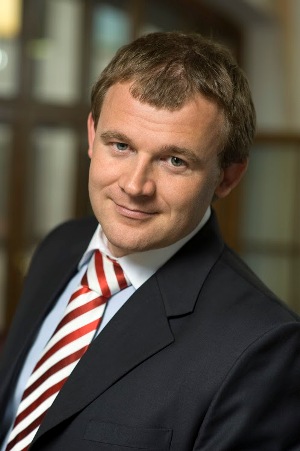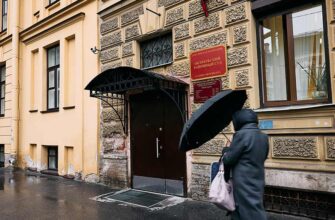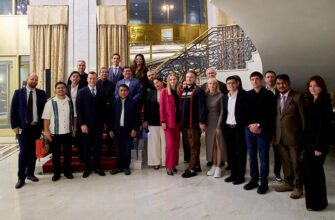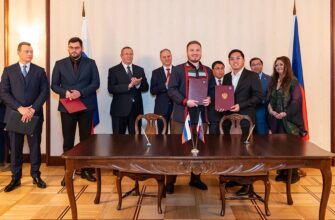Russians are becoming expats more frequently today (from the Latin ex patria “outside the homeland” – Professionals working in other countries). In connection with it there is an interest in the topic, to which our article is dedicated to.
Michael Germershausen knows everything about personnel. General Director of Antal Russia – one of the largest recruitment agencies in our country, which annually selects for individual tasks of large companies 1’000 professionals of different levels and citizenship for permanent job in 15 industries, says that to date, due to the State’s policy of localization, import substitution and increasing patriotic consciousness in Russia there is a trend to replace foreign executives on the Russians. On the other hand, for the European managers job in Russia is becoming less attractive because the fall of the economy opportunities for growth are limited and the amounts lose from the ruble devaluation indicated in their ruble contracts. Still, there are a lot of nuances in the invitation to work of those whom we call expats.
Michael agreed to tell our readers about the problems of foreigners’ employment. We believe that the conversation will be interesting to broad audience of readers, including those who are interested in management technology and thinking about involvement of specialists from abroad.
E Vesti: To say that in Russia there are many foreigners now or there is a big demand for them – maybe too early. In general, speaking about politics, in which a lot of localization and patriotism, it rather promotes the employment of Russians. Now in most industries Russian employees are represented, and where there are still foreigners, they tend to change to the Russians.
Germershausen M.: On average, we employ around 1’000 middle and senior managers in a year. Until 2013, while Crimea has not changed hands, we could talk about 40-50 foreigners, we employed. Last year, there were only 5 foreigners, this year we hope to arrange up to 10 foreigners. We can say that there is growth, but it is quite small.
This trend is confirmed by other signs. If you look at the prices of real estate, where foreigners live, or occupancy of foreign schools, our German and other international, that used to be a queue, but now they are taking everyone, because there are not so many foreigners.
E Vesti: Do Europeans aspire to work in Russia or to your requests come only from those who live here?
Germershausen M.: As recruiter we often face with the fact that we have to look for specialists in Russia, because it is difficult for companies to find people in their staff who would agree to go to Russia. People do not want to go, because there are fewer prospects in the career, for example, it is difficult to increase sales, there are other competing countries. This has not been 3-4 years ago, because Russia was in the top five for most companies in this regard earlier, and in the top ten in terms of turnover. And now Russia dropped out of the ten because of the devaluation of the ruble and other problems. In addition, there is also a mutual propaganda – this is an additional reason for not going to work here. I’m 13 years in Russia, but only with the recent time people began to make notes when you talk German or English, especially far away from Moscow. It is sad that this is happening lately.
So, the first group of specialists – those who have worked in Russia, and they want to come back. Such people always stand in the queue for work in Russia.
The second category – those managers, who come here for 2-3 years and then leave. If the experts have never been in Russia, transnational companies is difficult to persuade employees to move here.
But a lot of companies coming from Asia. Unfortunately, with their people. Thus, the railway line Moscow-Kazan will be built largely with the assistance of Chinese experts, because there are no such specialists. For this reason, it is unlikely to be cheap.
E Vesti: If the employer invites Europeans, what he usually pays attention on?
Гермерсхаузен М.: There are different types of foreigners-expats. There are cooperative expats who are employed at the head office for various reasons: the control, representation of the main office and etc. They are not selected for work in Russia for this purpose according to certain criteria, for their employment in large TNCs such as Renault it is necessary to have a good education and etc., and the decision to send in Russia is accepted because you are a valuable expert. And to become a CEO, you must have certain stages of your career, for example, you have to work in key positions in Russia or China.
The second type – when a project or problem is formed that you can not solve with the Russian officer, because such specialists are missing or are not available. Such specialists are attracted because of their experience.
E Vesti: On what is Russian employer look at?
Germershausen M.: The Russian customers generally have an idea, they are looking for a person for a project with a certain experience. It is important for them that people have had an experience of some kind. It is not even very important for them that people fit in psychology or a company culture.
Very often the client forgets that, in spite of similar appearance, people speak different languages and have the experience of living in different cultures. For example, a Russian man can say what he thinks, and the German will be more restrained in such situation. Also, there is a difference in performance and respect for the environment, an approach to which in Germany is formed since childhood. In Russia, if a company has a CEO, the communication with him can be very formal, and sometimes it is impossible to talk to him, if you didn’t make an appointment in advance. In more democratic companies there is no difference you’re CEO or ordinary employee.
E Vesti: In your experience, is the situation different with the demand for foreign managers in Russia and Europe? I think that in Europe the exchange of personnel more developed, or not?
Germershausen M.: Perhaps, we should start from the other end, from the employers. There are so many transnational companies (TNCs), which operate globally. They usually have a specific human resources policy and a certain corporate culture. They transmit this culture through staff too. So when they develop their business in Russia, they are trying to send here to implement corporate culture someone from the main office or a person who has long been working in the company. Likewise Russian companies make that are going from here to the world, because now due to the fall of the ruble, our products have become very competitive, so we started to work for export. A typical example – now we have a standard order – the Russian transport company wants to find a Russian specialist in the Netherlands. And we think, to seek him out from here or give an order to our office in the Netherlands?
In recent years, many Russian specialists have left from here, because there was no work. TNCs offered them projects in the main office to save specialists in the company. Therefore now Russian people can be found in Danone in Paris, as in Metro, in BP, and so on.
E Vesti: Today, Chinese are very active in Russia, build factories, expand the dealer network. Do they use your service?
Germershausen M.: Rarely. They have very strict requirements and focus on the Chinese. We had orders when were needed specialists with knowledge of the Chinese language. Such customers usually prefer Chinese with knowledge of Russian, and not the Russian who knows Chinese. In Chinese companies could be Russian director, and behind him – the Chinese, who decides everything. They are working so all over the world. Our candidates who work for Chinese either have a thick skin, strong nerves and a lot of patience, or they do not live there long.
In general, they have a different attitude to the workforce, they are poorly educated in terms of taxation and a lot of people lives there. There are thousands of them expelled for lack of a work permit, and thousands come again. Let’s see how this will go.
E Vesti: I always thought that our government hears the opinion of foreign experts, takes advice, is this true?
Germershausen M.: I can speak only about the staff. We are holding quite close dialogue with the Ministry of Labour and other ministries that are associated with it. We see attentive relationship to us, they are going towards us and try to hear us. But we understand that the interest of business – this is only one type of interest, and there are many other interests. They have to balance between business and labor unions, the Communists and United Russia, and many other people who are influence at it. The business has a voice in making laws, but this voice is not decisive.





